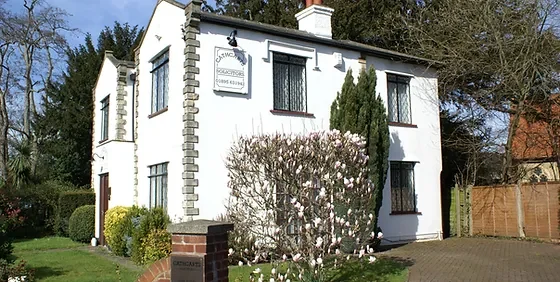The First-Tier Tribunal (“FTT”) has recently handed down the first reported remediation order under the Building Safety Act 2022 (“the Act”) for Waite & Others v Kedai Limited. The property dispute team advises that this provides a valuable insight into how such matters may unfold before the FTT.
What is a Remediation Order?
The Act at section123 provides that a Remediation Order may be granted by the FTT in favour of a “relevant person” in relation to “relevant defects” affecting a “relevant building” against a “relevant landlord” – each defined as follows:
1. A relevant person includes a person with a legal or equitable interest in a building, among others;
2. A relevant defect is a defect that causes a building safety risk and arises from work undertaken in the period from 28 June 1992 to 28 June 2022;
3. A relevant building contains at least two dwellings and is at least 11 metres high and/or has five storeys; and
4. A relevant landlord is a landlord under a lease of a relevant building.
If granted, a Remediation Order can require a landlord to remedy specified relevant defects within a specified time.
Waite & Others v Kedai Limited – a summary
The case related to a commercial premises, which was converted into a mixed-use building in 2016. It consists of six storeys – two ground floor commercial units and residential flats on the remaining floors.
Following the Grenfell Tower disaster in 2017, the leaseholders of the property raised concerns about the external cladding which was comprised of Aluminium Composite Material cladding panels and combustible Kingspan K15 insulation behind the cladding panels.
In light of the reports, the submissions made on behalf of the leaseholders and the FTT’s inspection of the property, the FTT made the Remediation Order against the landlord, Kedai, after finding that the majority of the defects complained of were ‘Relevant Defects’.
The Remediation Order requires Kedai to remedy the defects within 26.5 months of the hearing date (as opposed to the 18 months requested by the leaseholders).
Key Points
This case has raised many noteworthy points for leaseholders and landlords alike:
Burden of Proof- Kedai argued that the burden of proof lay with the leaseholders i.e., that they had to prove that the relevant defects existed. The FTT disagreed and made it clear that, “the Act must work and be made to work for leaseholders in a straightforward way”. The burden of proof rests with the applicant (the leaseholders) to establish a prima facie case. Establishing liability should be an evidence based exercise, which is to be led by inspection reports and expert evidence with the FTT also imparting its own findings from its own inspections and experience.
Building Regulations – The FTT decided that the relevant date for considering whether a ‘relevant defect’ creates a ‘building safety risk’ is the date of the hearing, based on current standards. Compliance with the Building Regulations at the time of the original works or installation is not the correct measure.
Standard of Remedial Work – A minimum standard of work is not specified in the Act. The FTT decided that the remedial work to be carried out by Kedai must; 1) comply with the Building Regulations at the time of the works and 2) be capable of achieving a ‘satisfactory’ EWS1 form.
Schedule of Defects – The Act was not prescriptive on this point but the FTT ensured, to the benefit of all parties, that the Remediation Order included a comprehensive and detailed schedule of defects which Kedai is to rectify.
Costs – The FTT is generally a ‘no costs jurisdiction’, save where a party has acted unreasonably. The Leaseholders sought that their costs were paid by Kedai but they were unsuccessful. The Leaseholders also sought an order to prevent Kedai from recovering its legal costs through the service charge. Schedule 9 of the Act makes it clear that no qualifying leaseholder is to pay the landlord’s costs of proceedings relating to ‘relevant defects’. The same however does not apply to non-qualifying leaseholders and the FTT decided that Kedai could pass on 20% of its costs through the service charge.
Conclusion
The FTT has embraced a purposive approach to its application of the Act to the benefit of the leaseholders. As the first case of its kind, this case provides a useful insight into the considerations to be made by the FTT in future cases. In the coming months there will undoubtedly be further cases addressing similar issues so it will be interesting to see if similar reasoning is applied across the board.
For further advice or information on the Building Safety Act, or any other property disputes matter, please contact the property disputes team at enquiries@bpcollins.co.uk or call 01753 889995.


















